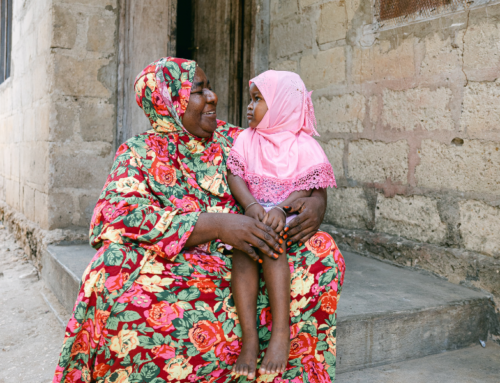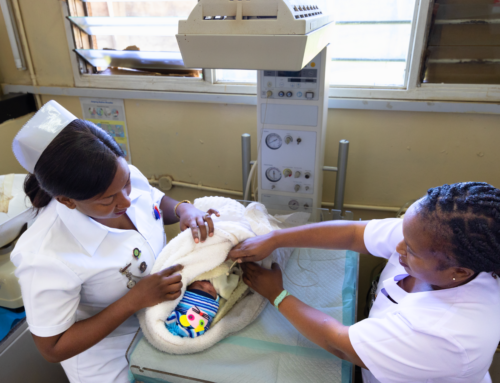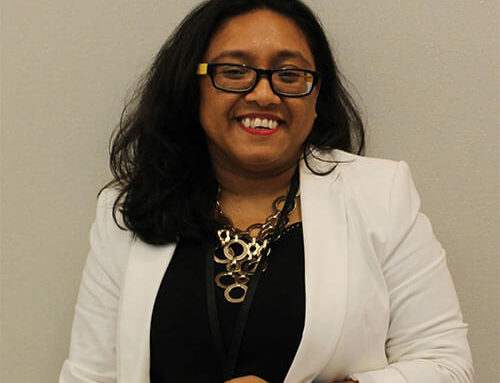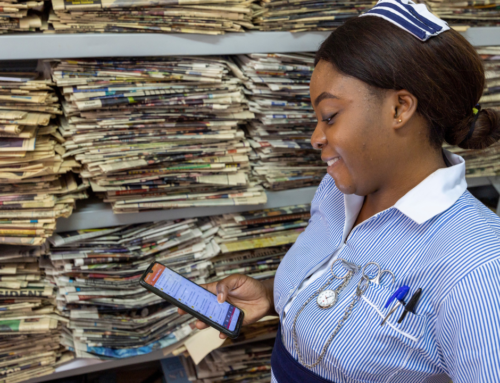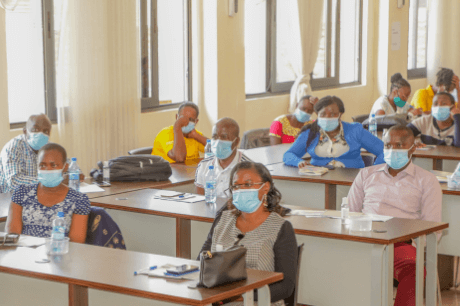
Health workers play a vital role in supporting survivors of sexual and gender-based violence in Kenya. They provide treatment, and can assist in efforts to prevent violence as well. One area that is often overlooked is their role in supporting the collection of forensic data that is needed when survivors choose to report their case to the legal authorities, including the police.
Amref Health Africa recently trained 500 health workers in Migori and Homabay counties on ethical, quality medical forensic examination, treatment and follow-up for suspected cases or survivors of sexual and gender-based violence (SGBV).
According to the National Crime and Research Centre, SGBV cases in Homabay and Migori Counties are at 16% and 19.6% respectively. A study carried out by Amref Health Africa and published in July 2021 found that one in every five Kenyans reported increased intimate partner violence during the COVID-19 pandemic.
Speaking at a training session in Homabay County, Professor Richard Muga said that COVID-19 had increased cases of sexual and gender-based violence, and called for a multi-sectoral approach to combating it. He noted that the County is looking forward to working with partners and relevant national government departments to build a strong partnership on the prevention of SGBV. “We have launched a SGBV Policy, and moving forward, we are targeting to set up safe spaces for women and girls, and supply them with the safe care kits donated by Amref,” he said.
A participant in the training, Molly Wagumba, a Community Health Assistant, said: “We have cases of SGBV in the community; sometimes it is hard to deal with it especially when the family intervenes and interferes with the legal processes.” However, Molly said that because of the training, she will be better placed to engage different entities, such as the Directorate of Criminal Investigations and the police, to promote justice for the survivors.
Mr. Mboya, a Health Records Officer, said that the specialized training had equipped him with the knowledge he needs to deal with difficult and challenging SGBV cases in the hospital. “Recording quality data is important because it informs and assists policymakers in formulating effective policies to combat SGBV. From this training, I am now able to do on-job training at the facility and community level. Handling SGBV cases is not a one-man show; it requires a collaborative approach,” he said.
Polycap Luta Queen, Principle Chemist/Government Analyst in Nyanza Region, urged health workers to be diligent in collecting samples to help survivors get justice. “If health workers do not collect, or wrongly collect, biological samples, then the entire process will not be legitimate and victims will not get justice. Most health workers will focus on the medical aspect and forget the forensic detail,” noted Polycap. “Forensic analysis is a very key consideration when collecting samples. These include how to preserve it and the chain of custody that are used in the courts.”
Other participants and facilitators in the sessions included magistrates, forensic experts, investigators, criminal investigation officers, government scientists and other SGBV experts from across the region.
Amref Health Africa in Kenya has been working with the national and county government departments to train health workers and community health workers (CHWs) on forensic management of SGBV cases in the wake of COVID-19 pandemic. With support from the Government of Canada through Global Affairs Canada, the program has trained over 500 health workers and 2,000 CHWs on SGBV in Homabay and Migori counties.

